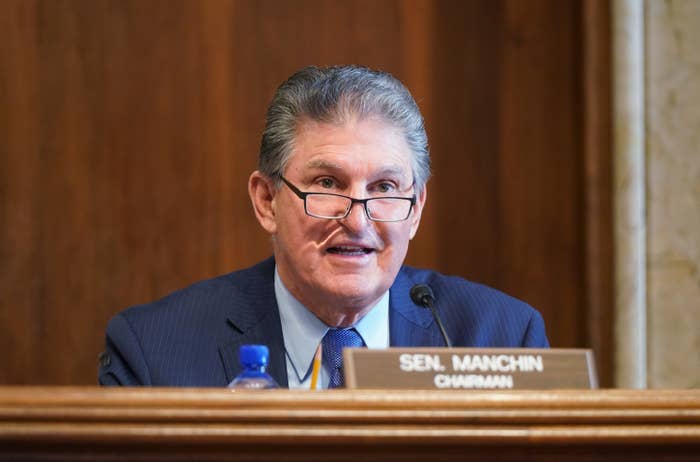
WASHINGTON — President Joe Biden’s $1.9 trillion coronavirus relief bill narrowly passed the Senate on Saturday, but only after aid programs like checks for most Americans were pared down.
The Senate passed the American Rescue Plan by a vote of 50–49 midday Saturday, with all 50 Democratic senators voting for it and 49 Republicans voting against it (Republican Sen. Dan Sullivan was not present because he was attending a funeral). The package must now go to the House for one more vote before it can be signed into law.
The bill contains hundreds of billions of dollars in aid for individuals, schools, local governments, and businesses, as well as programs ranging from COVID-19 vaccinations and contract tracing to funding for raising children.
“We promised our people legislation to bring America back from the depths of the pandemic,” said Senate Majority Leader Chuck Schumer right before the final vote. “In a few moments, we will deliver.”
BuzzFeed News has reporters around the world bringing you trustworthy stories about the impact of the coronavirus. To help keep this news free, become a member.
The razor-thin margin of error meant that a handful of moderate Democrats — and Sen. Joe Manchin of West Virginia in particular — were able to obtain several concessions. The original plan of sending out checks of up to $2,000 to most Americans was reduced to checks of up to $1,400. The income cap was also lowered — people making under $75,000 will receive the full amount, but anyone making over $80,000 will get nothing at all.
Voting on the bill started Friday morning but was held up for many hours as Manchin threatened to support a Republican amendment to severely curtail unemployment benefits. In the end, Democrats agreed to water down their bill to keep Manchin from voting for even sharper cuts. The bill originally paid out $400 per week in unemployment benefits until early October. This was shortened to $300 per week through Sept. 6. If nothing were passed, existing federal unemployment benefits would expire this month.
A previous version of the bill passed by the House would have gradually raised the federal minimum wage to $15 per hour over five years. That proposal was ruled out of order in the Senate. An attempt by Sen. Bernie Sanders of Vermont to add the minimum wage hike back into the bill failed Friday in a vote of 42–58, with eight Democrats voting against it.
If you're someone who is seeing the impact of the coronavirus firsthand, we’d like to hear from you. Reach out to us via one of our tip line channels.
The COVID-19 bill is the first attempt at lawmaking under the Biden administration and shows just how hard it will be to pass anything through the Senate. Republicans argued that the $1.9 trillion aid package was too large, and not a single one voted for it. Democrats had to use a special process called budget reconciliation to pass the bill with only 51 votes instead of the usual 60. Senators stayed in the chamber for over 24 hours voting down a long line of Republican amendments, many of which would have further curtailed the bill.
The package is expected to quickly pass the Democrat-controlled House, even though progressives are disappointed that a minimum wage hike is not included.
Despite winnowing down the bill, Senate Democrats argued that it was nonetheless a historically large rescue package. Other provisions of the bill include the following:
- An expansion of the child tax credit to $3,600 per year per child under the age of 6, and $3,000 per child over 6.
- $130 billion for schools, including funding for protective equipment and ventilation in schools.
- $40 billion for public colleges, half of which must be passed on to students through financial aid.
- $50 billion for COVID-19 testing and contract tracing.
- $25 billion for restaurants and bars.
- $350 billion for state and local governments.
- $90 billion toward transportation and infrastructure.
- $30 billion for emergency rental assistance.
Republicans denounced it as a slapdash way to spend almost $2 trillion. While the passage of the bill is a big win for President Biden, there are no signs that his promise to bring back bipartisanship to the Senate is coming to fruition. Budget reconciliation is a limited tool, and in the future, Biden will need to win over at least 10 Republican senators to pass his agenda items through Congress.
CORRECTION
Vice President Kamala Harris did not vote to break a tie on the COVID bill; she was not needed because of Sen. Dan Sullivan's absence. An earlier version of this story incorrectly stated that she did.

